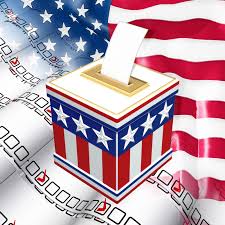
By Nadim Ladki
The U.S. presidential election has long ceased to be just a local American story, and with the campaigns approaching the final stretch as the primaries begin, international interest in the race to the White House is set to intensify.
It’s testimony to the fact that the United States remains the true global power that people and the media in most countries will follow the race closer than they follow even some local stories. This is particularly so in the war-ravaged Middle East.
While the social and economic agendas of candidates inevitably top the focus of the American public and media, the main interest in the Middle East is the foreign policy of the pretenders to the position of most powerful person in the world.
Although Lebanon is a tiny country, it sits at the heart of the fault line in the Middle East. With that in mind, Lebanese generally, like many Arabs, will be looking at the policies of the candidates as they relate to three key issues: Daesh (also known as the Islamic State of Iraq and Syria, or ISIS), the regional proxy war between Saudi Arabia and Iran, and the Israeli-Palestinian peace process.
ISIS has emerged as an extremely serious international terror threat, but it is an existential one to people in the Middle East, the Muslim majority that opposes it, Christians and other minorities. The reality is that Lebanon will never feel safe with ISIS terrorists at its doorstep.
But Washington is also being looked upon to help ease tensions between regional powerhouses Iran and Saudi Arabia. And it is in a unique position after the nuclear deal to check Tehran’s interference in the affairs of its Arab neighbors and to use its historic ties with Riyadh to contain the fires raging in the region.
As for issues relating to the Palestinians, the Lebanese are looking for a U.S. president who might nudge Israel into a peace deal that sees the Palestinians establish a viable state.
Ultimately, Lebanese will be interested spectators in the U.S. presidential race, and they will likely feel an affinity with the candidate that offers both leadership and a clear policy for tackling these vital regional issues.
Nadim Ladki is editor in chief of Lebanon’s Daily Star newspaper.



